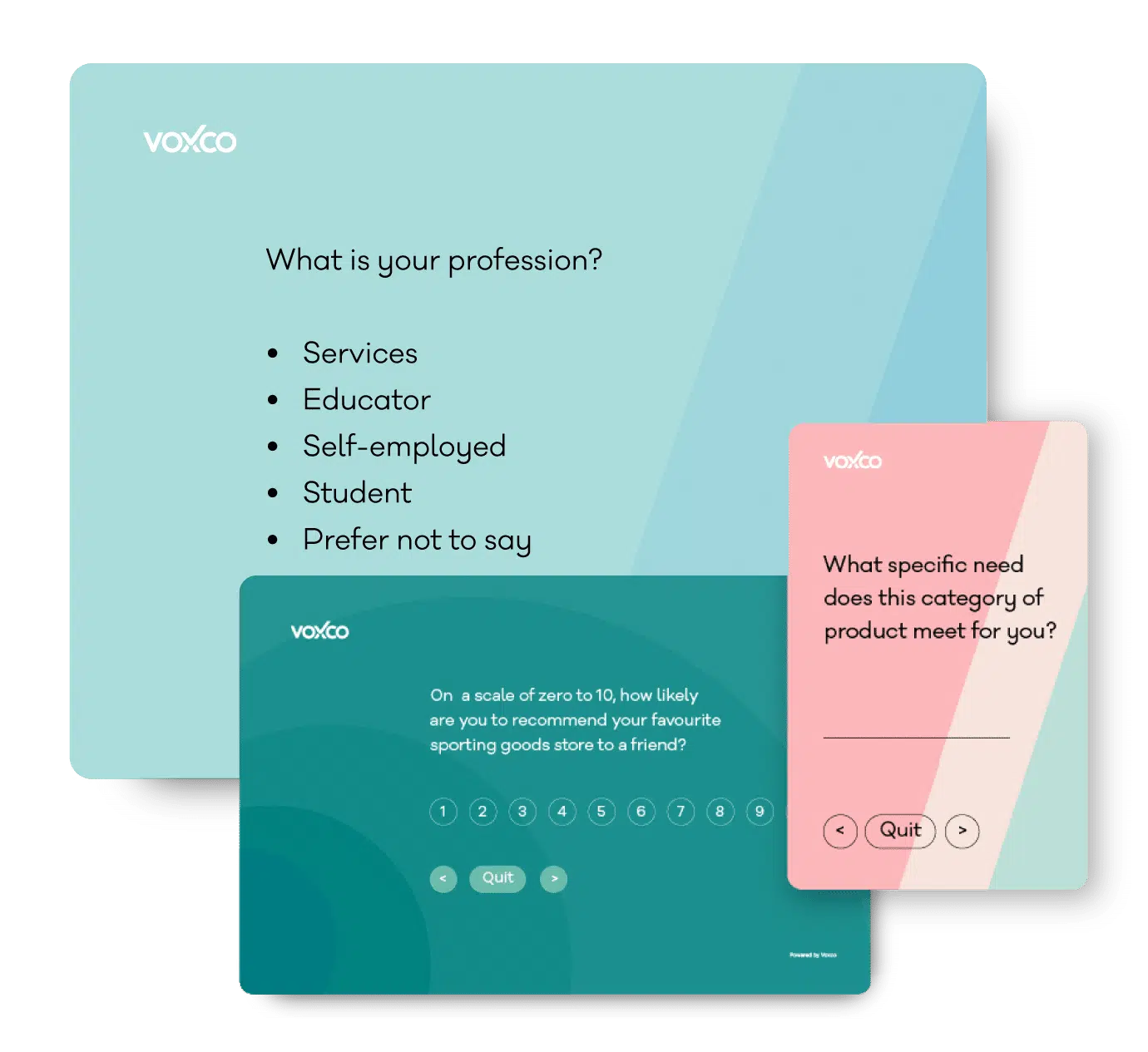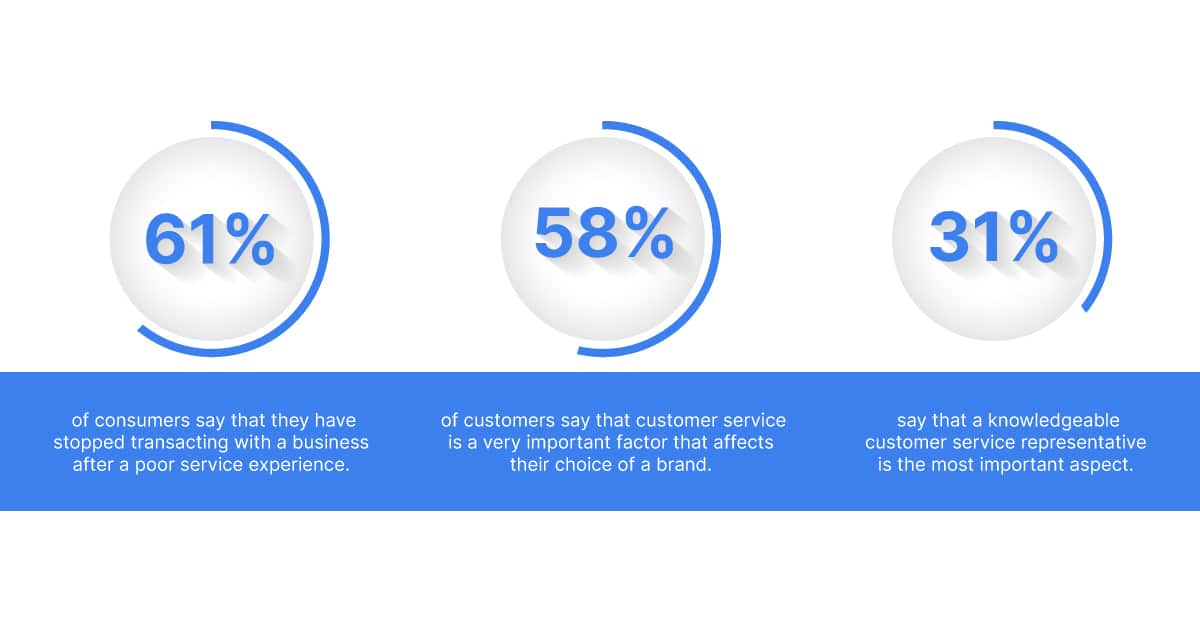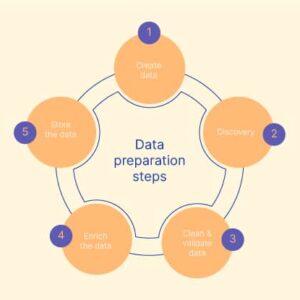
Correlation coefficient excel
Correlation coefficient excel SHARE THE ARTICLE ON Table of Contents Correlation coefficient is used to find the relationship between two variables and how strong they

Find the best survey software for you!
(Along with a checklist to compare platforms)
Take a peek at our powerful survey features to design surveys that scale discoveries.
Explore Voxco
Need to map Voxco’s features & offerings? We can help!
Find the best customer experience platform
Uncover customer pain points, analyze feedback and run successful CX programs with the best CX platform for your team.

We’ve been avid users of the Voxco platform now for over 20 years. It gives us the flexibility to routinely enhance our survey toolkit and provides our clients with a more robust dataset and story to tell their clients.
Steve Male
VP Innovation & Strategic Partnerships, The Logit Group
Explore Regional Offices

Find the best survey software for you!
(Along with a checklist to compare platforms)
Take a peek at our powerful survey features to design surveys that scale discoveries.
Explore Voxco
Need to map Voxco’s features & offerings? We can help!
Find the best customer experience platform
Uncover customer pain points, analyze feedback and run successful CX programs with the best CX platform for your team.

We’ve been avid users of the Voxco platform now for over 20 years. It gives us the flexibility to routinely enhance our survey toolkit and provides our clients with a more robust dataset and story to tell their clients.
Steve Male
VP Innovation & Strategic Partnerships, The Logit Group
Explore Regional Offices

Find the best survey software for you!
(Along with a checklist to compare platforms)
Take a peek at our powerful survey features to design surveys that scale discoveries.
Explore Voxco
Need to map Voxco’s features & offerings? We can help!
Find the best customer experience platform
Uncover customer pain points, analyze feedback and run successful CX programs with the best CX platform for your team.

We’ve been avid users of the Voxco platform now for over 20 years. It gives us the flexibility to routinely enhance our survey toolkit and provides our clients with a more robust dataset and story to tell their clients.
Steve Male
VP Innovation & Strategic Partnerships, The Logit Group
Explore Regional Offices

SHARE THE ARTICLE ON
A contact center agent is a part of the customer service function that handles customer queries or conducts survey research. A contact center agent often called a customer service representative, is either a part of the customer experience or helps conduct large-scale survey research. As a part of customer experience, the contact center agent helps consumers with problems, including placing orders, addressing billing issues, and answering policy questions.
Call Center agents offer human interaction to a customer. Due to this, they have a huge effect on the customer experience. Call center agents who succeed in contact centers are empathic, have strong problem-solving abilities, and are excellent communicators. Contact center agents must also be versatile and adaptable because they can be multi-skilled and manage many channels.
Businesses should ensure high quality of the agents handling customer queries. The organizations should train and provide resources to agents to handle queries efficiently. The agents need resources like an intuitive agent interface, customer relationship management (CRM) software, and agent dashboards to track their success once they’ve arrived on the contact center floor. Contact center agents must be handled competently to round out the support, monitored, evaluated, and scheduled.
Effective service operations understand the value of contact center agents and invest in their growth.

See Voxco in action
All the new technologies and cutting-edge technology in the world won’t help if your contact center doesn’t have suitable agents.
Because of rising customer expectations, contact centers need to ensure their call center agents have sufficient training to handle and resolve queries at first touch. Customer contact call centers before purchasing a product to understand about the product in great detail, especially when large sum of money is involved.
According to an Invoca survey, 39 percent of people choose to consult with an expert advisor when making a complicated transaction, while 35 percent call when their purchase reaches $500.Customers seek contact center agents for assistance in multiple product operations. According to American Express, 40% of consumers prefer to speak with a live call center agent when dealing with complicated problems like payment disputes. Because customers contact call centers on different channels with specific queries in mind, it is more important to have the knowledgeable agents who can work across channels.
When a customer calls into a contact center, a Contact Center Agent is typically supposed to answer questions. On the other hand, an Agent can contact customers directly, either for customer research or to sell them something. In addition to phone calls, Agents often connect with customers via email, live chat, or the mail – often known as “snail mail.”
What distinguishes us? We connect your agents to your customers and the rest of your business! Agents are integrated directly into Teams, enabling them to communicate with other workers in real-time.
Customer service demands are increasingly rising. Customers now demand more than just a response to their questions, and successfully educating the call center agents is essential to gaining a competitive edge in the customer experience.
A call center agent’s job is complicated and challenging. Agents must strike a delicate balance between pleasing callers and meeting the needs of their organizations. Each call is unique, and call center agents must have a diverse skill set to deal with a wide range of circumstances that may occur.
It’s just as important to hire a great call center agent as it is to have the right call center software. During the hiring process, candidates may be screened based on several factors such as personality, ability, fitness, and motivation. Regardless of your list of requirements, understanding what makes a good agent is beneficial.

Voxco allows workers to work productively and safely from anywhere. Our software combines collaboration & messaging, interactive workspaces, and contact center functionality – all from a browser on any connected computer. Voxco’s innovations are a strong, modular system that allows employees to contribute even more to the com, no matter where or when they are working. Businesses that work with Voxco are working with a true technology partner. A company that becomes an expert extension of their IT team, one that listens to their needs and tailors solutions specifically for their company, and one that is quick to react.
When you’re the manager of a contact center, you have to make a lot of choices that affect the bottom line. It’s also not a good idea to go by the seat of your pants. You must monitor what your agents are doing, how quickly they are completing tasks, and how well they are serving your customers. The only way to do so is to use solid, accurate call center metrics to track agent productivity.
Why You Need To Track Statistics
Keeping track of call center statistics is a good way to stay on top of industry trends.
You will figure out what your customers want and customize your services to meet their needs. This makes keeping up with evolving customer demands and maintaining a positive customer service experience much easier.Statistics on call centers will also give you an idea of what to expect in the future.You’ll be able to see emerging trends and adapt the business processes to keep up. This keeps you one step ahead of your rivals and ensures that you’re still one step ahead of them.
But what contact center metrics do you track?
Since contact center software also provides you with several metrics in real-time, you’ll need to know the ones that are most important to pay attention to. And, once you have the KPIs, you must understand how to use them. Here are eight of the most important contact center success indicators to track.
Learn how to meet respondents where they are, drive survey completion while offering a seamless experience, Every Time!
You want to have excellent customer service, but you won’t be able to do so if your clients don’t stay on the phone long enough to receive help. The average call abandonment rate is the number of callers who hang up before speaking with a live person.
This call center metric won’t tell you anything about a specific agent, but it will tell you a lot about how productive they are. If your average call abandonment rate is too high, check for issues that concern all of your agents and figure out why they can’t get to your customers on time.
The number of callers who got a busy tone when they called is referred to as the percentage of calls blocked. If this contact center metric is too big, the agents are missing out on opportunities to assist customers, which may lead to irritated customers who are unable to get the service they need.
It’s possible that you’re not hitting this KPI because you don’t have enough available agents assigned to a move. Or is it possible that your lines are being used for personal gain? In any case, figure out how to free up your lines and agents so that your customers aren’t turned away.
Average time in queue is another metric for overall efficiency. To calculate this metric, divide the total time callers spend in the queue by the total number of calls answered. To enhance your customers’ experience, monitor the average time spent in queue. If you see that customers are standing in line for longer than normal, challenge your team to reduce this KPI score by improving call handling performance. Another alternative is to provide a callback service so that consumers do not have to wait.
One of the contact center metrics that measure agent efficiency in real-time as agents take calls is service quality. It’s a percentage of calls answered in a certain amount of time, measured in seconds.Use this measure to see if agents are transitioning from one call to the next fast enough. Encourage your agents to stay within the expected range for this KPI.
One of the best contact center metrics to evaluate the team of agents when measuring agent effectiveness is the average speed of response. This contact center metric measures the average time it takes to answer calls within a given time frame.
If this metric is too high, it could indicate that your agents aren’t going as fast as they could be. Look at why they aren’t picking up the phone sooner. Improved work tools, for example, may help them lower their ASA.
This metric is one of the most critical ways to calculate contact center agent efficiency. From the moment the agent picks up the phone until the call is disconnected, this is the average time.
Average handle time is a difficult metric to calculate because it must fall firmly within the range you specify. When your agent’s handle time is too long, it could indicate that they’re having trouble handling customer requests. However, if the agent’s average handle time is too short, it may indicate that they aren’t helping. Track call quality with quality assurance tools to ensure that all of your bases are covered.
Focus on preparing and equipping employees with the tools they need to respond to customer inquiries quickly. Give them all the information they need with a single mouse click so they can achieve their KPI target.
Average After Call Work Time is an excellent way to assess contact center agent efficiency. The average time it takes agents to complete the work associated with a call after it has been completed is known as average after-call work time.
Your agents must commit sufficient time to this task to complete it correctly and thoroughly. However, if you notice that your typical after-hours work time is excessive, there may be a problem. Could you design and distribute templates? Is there so much paperwork? Find out what’s stopping them from finishing this job quickly and how you can make it easier for them.
Customer satisfaction is a broad metric for assessing contact center efficiency. Although several other contact center metrics can expose places where your agents are falling short, the customer satisfaction score is the clearest indicator of whether or not your contact center is delivering the service your customers need. After-call surveys are typically used to measure customer satisfaction, but other contact center metrics such as Net Promoter Score may be used. It’s a good reason to celebrate and reward the team if they’re doing well on this metric! Even before you look at the metrics, as a contact center manager, you will have a general idea of how well the agents are doing. You can, however, pinpoint your strengths and areas for progress by evaluating particular main performance measures.
If you want to consolidate your KPIs in one location and build contact center dashboards to share with your teams and agents, Voxco could be the right match.
Read more

Correlation coefficient excel SHARE THE ARTICLE ON Table of Contents Correlation coefficient is used to find the relationship between two variables and how strong they

5 Tips On How To Avoid Bias In Surveys SHARE THE ARTICLE ON Table of Contents Surveys are a valuable source of information to derive
Brand Equity: What It Is and How to Measure It? SHARE THE ARTICLE ON Table of Contents In this saturated marketplace, the competition is extreme

How to Conduct Data Preparation for Social Research? SHARE THE ARTICLE ON Table of Contents What is Data Preparation? Data preparation refers to the process

e-Commerce Organization Voxco Online / Professional Services SHARE THE ARTICLE ON Voxco empowers HR team to evaluate 2,000-person monthly hiring process. The Client One of

How to create a Customer Experience Survey SHARE THE ARTICLE ON Table of Contents “We adore our customers.” It’s a phrase you might include in
We use cookies in our website to give you the best browsing experience and to tailor advertising. By continuing to use our website, you give us consent to the use of cookies. Read More
| Name | Domain | Purpose | Expiry | Type |
|---|---|---|---|---|
| hubspotutk | www.voxco.com | HubSpot functional cookie. | 1 year | HTTP |
| lhc_dir_locale | amplifyreach.com | --- | 52 years | --- |
| lhc_dirclass | amplifyreach.com | --- | 52 years | --- |
| Name | Domain | Purpose | Expiry | Type |
|---|---|---|---|---|
| _fbp | www.voxco.com | Facebook Pixel advertising first-party cookie | 3 months | HTTP |
| __hstc | www.voxco.com | Hubspot marketing platform cookie. | 1 year | HTTP |
| __hssrc | www.voxco.com | Hubspot marketing platform cookie. | 52 years | HTTP |
| __hssc | www.voxco.com | Hubspot marketing platform cookie. | Session | HTTP |
| Name | Domain | Purpose | Expiry | Type |
|---|---|---|---|---|
| _gid | www.voxco.com | Google Universal Analytics short-time unique user tracking identifier. | 1 days | HTTP |
| MUID | bing.com | Microsoft User Identifier tracking cookie used by Bing Ads. | 1 year | HTTP |
| MR | bat.bing.com | Microsoft User Identifier tracking cookie used by Bing Ads. | 7 days | HTTP |
| IDE | doubleclick.net | Google advertising cookie used for user tracking and ad targeting purposes. | 2 years | HTTP |
| _vwo_uuid_v2 | www.voxco.com | Generic Visual Website Optimizer (VWO) user tracking cookie. | 1 year | HTTP |
| _vis_opt_s | www.voxco.com | Generic Visual Website Optimizer (VWO) user tracking cookie that detects if the user is new or returning to a particular campaign. | 3 months | HTTP |
| _vis_opt_test_cookie | www.voxco.com | A session (temporary) cookie used by Generic Visual Website Optimizer (VWO) to detect if the cookies are enabled on the browser of the user or not. | 52 years | HTTP |
| _ga | www.voxco.com | Google Universal Analytics long-time unique user tracking identifier. | 2 years | HTTP |
| _uetsid | www.voxco.com | Microsoft Bing Ads Universal Event Tracking (UET) tracking cookie. | 1 days | HTTP |
| vuid | vimeo.com | Vimeo tracking cookie | 2 years | HTTP |
| Name | Domain | Purpose | Expiry | Type |
|---|---|---|---|---|
| __cf_bm | hubspot.com | Generic CloudFlare functional cookie. | Session | HTTP |
| Name | Domain | Purpose | Expiry | Type |
|---|---|---|---|---|
| _gcl_au | www.voxco.com | --- | 3 months | --- |
| _gat_gtag_UA_3262734_1 | www.voxco.com | --- | Session | --- |
| _clck | www.voxco.com | --- | 1 year | --- |
| _ga_HNFQQ528PZ | www.voxco.com | --- | 2 years | --- |
| _clsk | www.voxco.com | --- | 1 days | --- |
| visitor_id18452 | pardot.com | --- | 10 years | --- |
| visitor_id18452-hash | pardot.com | --- | 10 years | --- |
| lpv18452 | pi.pardot.com | --- | Session | --- |
| lhc_per | www.voxco.com | --- | 6 months | --- |
| _uetvid | www.voxco.com | --- | 1 year | --- |